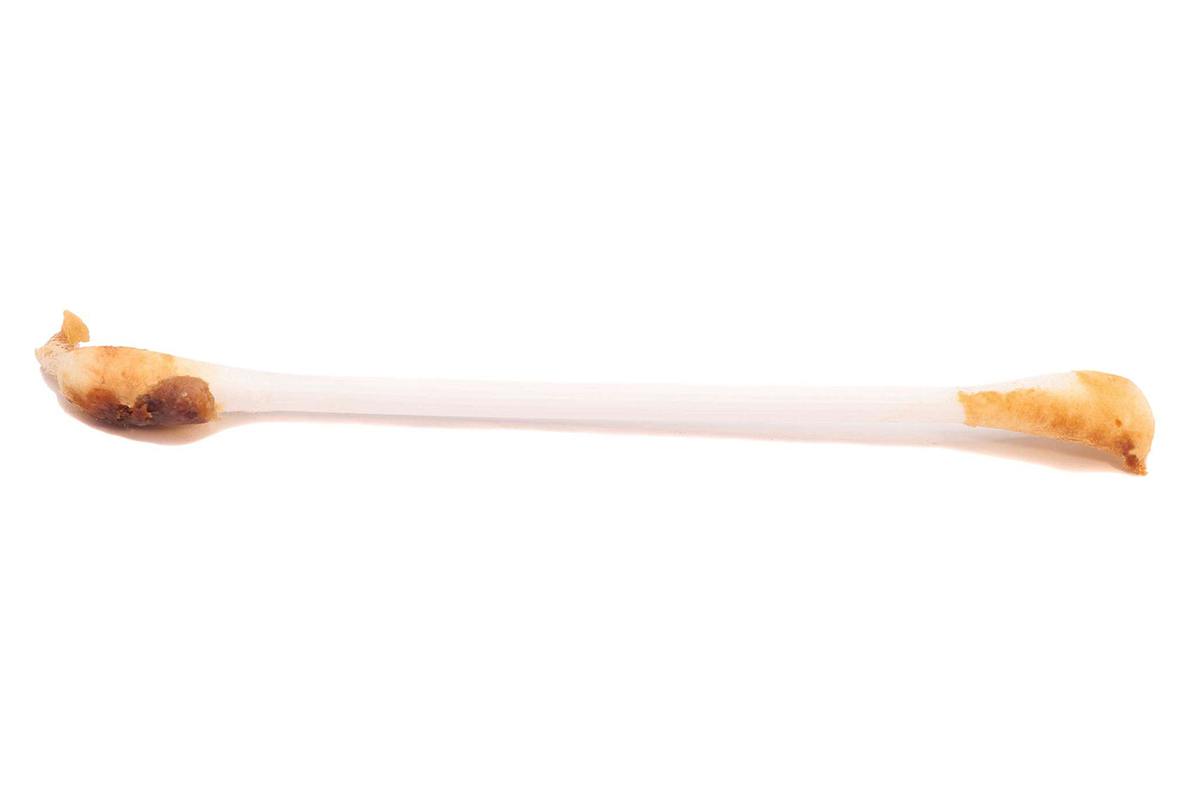Is Earwax Flammable? The Surprising Truth You Need To Know
Have you ever wondered if earwax is flammable? If you're like most people, this question might sound weird but stick with me here. Earwax, or cerumen as the science nerds call it, is a natural substance produced by your body to protect your ears. But what happens when you accidentally expose it to fire? Is it really something you should worry about?
Earwax might not be a topic you discuss at dinner parties, but it's more fascinating than you think. This sticky substance is actually a superhero for your ears, keeping dirt, bacteria, and other unwanted guests out. But is it safe around heat or flames? Let's dive in and find out!
Before we get into the nitty-gritty details, let me reassure you: earwax isn't exactly something you'd want to light on fire. But understanding its properties can help you stay safe and avoid accidents. So, grab a cup of coffee, and let's explore the flammability of earwax together.
Read also:Discovering Lexi 2legit Erome A Rising Star In The Entertainment World
What Exactly is Earwax?
Earwax, or cerumen, is a waxy substance secreted in the ear canal. It's made up of a mix of sebum, dead skin cells, and other goodies your body produces to keep your ears clean and protected. Think of it as nature's ear cleaner. But what makes it so special?
Earwax has antimicrobial properties that help fight off infections. It also traps dust and dirt, preventing them from traveling deeper into your ear. Without it, your ears would be a breeding ground for bacteria and fungi. So, the next time you see that yellowish gunk in your ears, remember it's doing its job!
Is Earwax Dangerous?
Now that we know what earwax is, let's address the elephant in the room: is it dangerous? In most cases, earwax isn't harmful. However, if it builds up too much, it can cause issues like hearing loss, earaches, or dizziness. But don't worry, there are safe ways to remove excess earwax without damaging your ears.
- Avoid using cotton swabs, as they can push earwax further into your ear canal.
- Try over-the-counter ear drops to soften the wax and help it come out naturally.
- If the problem persists, consult a healthcare professional for safe removal.
Is Earwax Flammable?
Alright, let's tackle the big question: is earwax flammable? The short answer is yes, but don't panic just yet. Earwax contains organic compounds that can catch fire under certain conditions. However, it's not as flammable as you might think.
For earwax to ignite, it needs to reach a high temperature, around 400°F (204°C). So, unless you're intentionally exposing your earwax to open flames or extreme heat, it's unlikely to catch fire. But hey, who's lighting their earwax on fire anyway?
What Happens When Earwax Burns?
If, for some strange reason, you decide to burn earwax, here's what happens. When exposed to high heat, earwax can produce a foul-smelling smoke and a small flame. This is because it contains fatty acids and other organic materials that burn when heated. But again, this is not something you should try at home.
Read also:Adalberto Martiacutenez Resortes A Celebrated Icon In Mexican Comedy
Burning earwax can also release harmful chemicals into the air, which can irritate your lungs and throat. So, if you're thinking about conducting a science experiment with your earwax, maybe reconsider and stick to safer activities.
How to Safely Remove Earwax
Now that we've established earwax isn't highly flammable, let's talk about safe removal methods. If you're dealing with excessive earwax buildup, here are some tips to help you out:
- Use ear drops designed to soften earwax. These can be purchased over-the-counter and are safe to use.
- Try irrigation kits, which gently flush out the ear canal with warm water.
- Avoid using cotton swabs, as they can push the wax deeper into your ear.
- Consult a healthcare professional if you're unsure or if the buildup is causing discomfort.
When to See a Doctor?
While most cases of earwax buildup can be managed at home, there are times when you should seek medical attention. If you experience symptoms like:
- Severe ear pain
- Hearing loss
- Dizziness or vertigo
- Ear discharge or bleeding
These could indicate a more serious issue, and it's best to consult a healthcare professional for proper diagnosis and treatment.
Understanding the Science Behind Earwax
Earwax might seem simple, but there's a lot of science behind it. It's produced by specialized glands in the ear canal and is a mixture of sebum, dead skin cells, and other components. The exact composition can vary from person to person, which is why some people produce more earwax than others.
Research shows that earwax has antimicrobial properties, making it an effective barrier against infections. It also helps lubricate the ear canal, preventing dryness and irritation. So, while it might not be the most glamorous topic, earwax is actually pretty amazing!
Can Earwax Composition Affect Flammability?
The composition of earwax can vary depending on factors like age, diet, and genetics. Some people produce wet earwax, while others produce dry earwax. Interestingly, wet earwax is more likely to be flammable due to its higher fat content. However, both types of earwax require high temperatures to ignite, so the risk remains low in everyday situations.
Preventing Earwax Buildup
Prevention is key when it comes to managing earwax. Here are some tips to help you avoid excessive buildup:
- Use earplugs or protective gear when exposed to loud noises to prevent damage to your ears.
- Avoid inserting objects into your ears, as this can push earwax deeper into the canal.
- Regularly clean your ears with a damp cloth, but be gentle and avoid excessive cleaning.
- Stay hydrated, as dehydration can lead to dry earwax, which is harder to remove.
Earwax Removal Myths
There are plenty of myths surrounding earwax removal. Let's debunk a few of them:
- Cotton swabs are safe: Wrong! Cotton swabs can damage your ears and push earwax deeper into the canal.
- Ear candles work: Nope! Ear candles are not effective and can actually harm your ears.
- Earwax is dirty: Not true! Earwax is a natural and necessary substance that protects your ears.
Conclusion: Is Earwax Flammable?
So, is earwax flammable? Technically yes, but the risk is minimal in everyday situations. Earwax is a fascinating substance that plays a crucial role in protecting your ears. Understanding its properties and how to manage it safely can help you avoid unnecessary complications.
If you're concerned about earwax buildup or have questions about ear health, don't hesitate to reach out to a healthcare professional. And remember, never try to light your earwax on fire – trust me, it's not worth it!
Now that you've learned all about earwax, feel free to share this article with your friends and family. Who knows? You might just become the go-to expert on all things earwax. And if you have any questions or comments, drop them below – I'd love to hear from you!
Table of Contents
- What Exactly is Earwax?
- Is Earwax Dangerous?
- Is Earwax Flammable?
- What Happens When Earwax Burns?
- How to Safely Remove Earwax
- When to See a Doctor?
- Understanding the Science Behind Earwax
- Can Earwax Composition Affect Flammability?
- Preventing Earwax Buildup
- Earwax Removal Myths


